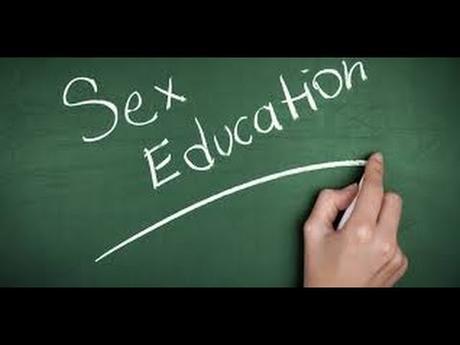
Students deserve better.
I attend a small private school in Westchester, New York, which is a fairly privileged and wealthy suburb of New York City. Yet despite this privilege, our school’s health curriculum remained outdated, heteronormative, and simply not that applicable or relatable to students. For example, we learned about relationship abuse by watching black-and-white videos that suggested only women could possibly be victims, and spent most of the class learning about physical health and good dietary choices. Although learning about the benefits of exercise is important to young people, spending so much time focusing on, say, the negative effects of cholesterol just wasn’t the critical, useful knowledge we needed to know at that point in our lives.
Last year, our school’s “All Genders and Sexualities Allied” club (our take on a Gay-Straight Alliance, nicknamed AGSA) decided to finally address the student body’s growing number of complaints regarding the state of our school’s health curriculum. The club hosted an hour-long seminar in our school’s chapel, during which students led discussions amongst their peers about what they liked and didn’t like about our school’s health curriculum.
Students came in masses, furiously scribbling down their thoughts about the curriculum onto giant whiteboards. Kids from all different friend groups surrounded their respective whiteboards, wringing their hands as they explained to their peers the importance of learning about contraception, not carbs, in health class. I heard chimes of agreement everywhere: “Yeah, I also think that the videos we watch in class are way too old,” and, “I totally agree with so-and-so, I’d like to learn about different genders and sexualities.”
We wrote pages upon pages of new ideas for potential solutions that student leaders later presented in front of the entire chapel, which included teachers as well. None of them attempted to speak over us — rather, they silently watched our presentation and listened to everything that we had to say.
Long story short, nearly all of the students’ diverse ideas were addressed by our director of health, and the health curriculum was altered to fit our desires. The health classes shifted their focus to safe sexual health, and our school now offers “minors” (aka extracurricular classes) on gender and sexuality for interested students.
The effects of our student-led reform are clear and concrete in the classroom. We now have the opportunity to anonymously ask our health teacher questions about any personal concerns we have. We bring in speakers from local organizations that help victims of emotional and physical abuse. We essentially have the freedom to decide what we want to learn: Our health teacher takes suggestions from the class and adjusts the curriculum to fit our interests.
But while our school administration embraced this kind of discourse in our community and took action, this isn’t the case for many schools across the country. Health classes, although arguably one of the most important and relevant type of class for young students, often contain concepts and lessons that have become outdated and inaccurate. Currently, only 22 states and the District of Columbia mandate both sex and HIV education; two states mandate sex education in general. A mere thirteen states require that the information presented in sex and HIV education classes be medically accurate. What’s more, students are frequently unable to take action on this issue due to a range of factors such as state laws and uninterested administrators.
This is not right. As the ones most exposed to and affected by this curriculum, young people need to lead the changes to it. So, as a member of Day of the Girl’s US Action Team, I decided that I had to take action against an issue that my school community was lucky enough to change. This issue is so important because the information that you learn in health class follows you for the rest of your life, and if you aren’t taught accurate, unbiased content, then the consequences may affect your future. I want to help other young activists like myself create impactful change in their communities. In a world where youth are frequently told that they cannot accomplish something simply due to their age, I want to prove that young people have the energy, passion, and intellect to be revolutionary. And that’s what Day of the Girl has always believed in and emphasized.
Although schools seem like the most obvious place for youth activists to create change, addressing administrators and trying to reform a whole curriculum can justifiably seem very daunting to many students. That’s where Day of the Girl comes in: We want to teach youth how to create real, effective action in their school communities, If you have no idea where your school stands in terms of a strong health curriculum, no worries: We’ll provide activists with a checklist that you can compare your school to and see if your school has comprehensive sex. And, in order to help make talking to your teachers a bit less scary, you’ll be given a toolkit on how to respectfully discuss this sex ed reform with your school administration.
Youth make up the overwhelming majority of a school – why shouldn’t they have the opportunity to make change? Contact me at [email protected] if you would like guidance in taking action on improving your health curriculum! Visit our page here to learn more details.
October 11th is an international day of action dedicated to dismantling patriarchy and fighting for social justice. Day of the Girl-US is an 100% youth-led movement fighting for gender justice and youth rights. Join the movement at www.dayofthegirl.org.

